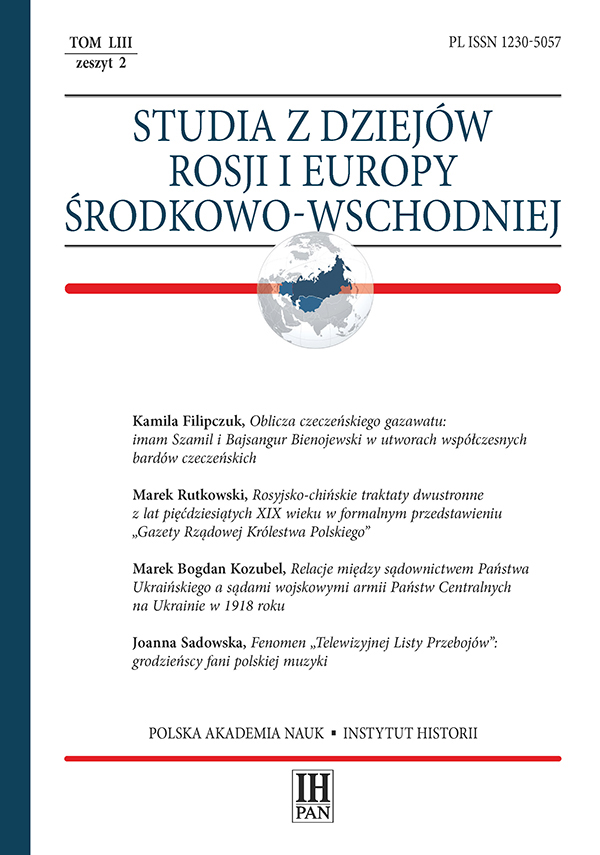Czy metodologia powinna zaćmiewać faktografię? Nowe spojrzenie na rewolucję 1905 roku
Is methodology supposed to outshine factography? A new perspective on the 1905 Revolution
Author(s): Aleksander ŁaniewskiSubject(s): History, Political history, Recent History (1900 till today), Pre-WW I & WW I (1900 -1919), Book-Review
Published by: Instytut Historii im. Tadeusza Manteuffla Polskiej Akademii Nauk
Keywords: Revolution of 1905; Kingdom of Poland; Russian Empire; Grodno Governorate; socialism; Bund; anarchism; National Democracy
Summary/Abstract: The review article is a polemics with theses presented in the book by Wiktor Marzec Rebelia i reakcja. Rewolucja 1905 roku i plebejskie doświadczenie polityczne [“Rebellion and Reaction. The 1905 Revolution and Plebeian Political Experience”], published in Łódź and Kraków in 2016. Undoubtedly, the book which is a new and interesting voice in the discussion of problems of revolutionary events at the beginning of the 20th century, according to the reviewer, is imbued with Anglo-Saxon methodology, and does not add any new factual contribution to the literature on the subject. Aleksander Łaniewski confronts a book written from the position of discourse-oriented historical sociology from the position of a historian’s workshop. Focusing on random fragments of the 1905 Revolution and ignoring certain socio-political forces is not enough to discuss the plebeian political experience and to give a comprehensive description of Polish political modernity. The analysis, among others, lacked a broader discussion of political subjects from both the “regime” (e.g. Russian monarchist forces) and revolutionary (e.g. anarchist) camps, or the Christian workers’ unions which were on the borderline between two poles of the revolution. Besides, in the analysis of plebeian political experience there was no voice of an extremely important ethnic factor – Jews (Bund, Zionists, Yiddish-language leaflets). In addition, some social groups (peasants, intelligentsia) and women were ignored, as well as some regions important for the 1905 Revolution (e.g. the Białystok Industrial District). It also seems that Wiktor Marzec sometimes falls into an idealization of the proletariat and Polish socialist parties. According to Łaniewski, the fragmentary treatment of the factual material, sources and literature on the subject allow to talk about the need for further research into the Revolution of 1905. The review also underlines that the book is written in a very difficult language.
Journal: Studia z Dziejów Rosji i Europy Środkowo-Wschodniej
- Issue Year: 53/2018
- Issue No: 2
- Page Range: 151-175
- Page Count: 25
- Language: Polish

